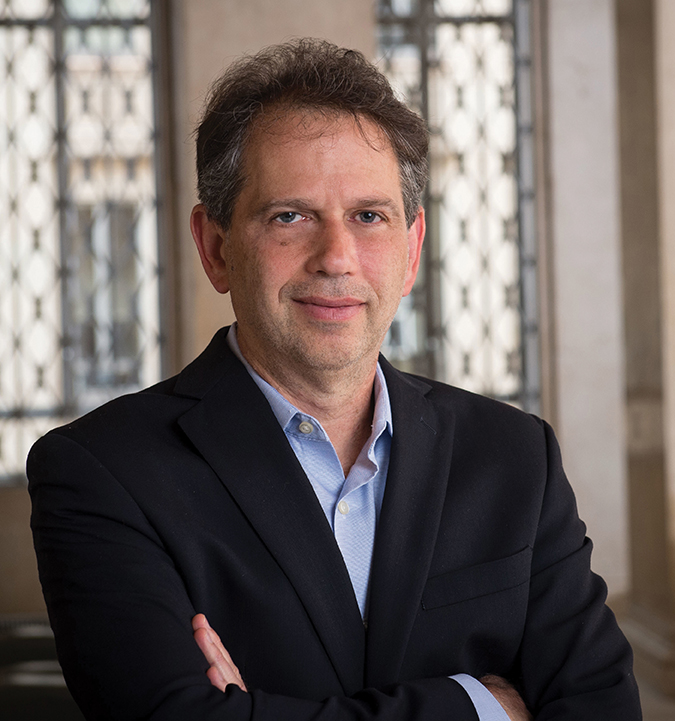
Letter from the Department of Physics Head,
Scott Dodelson
When we look back at 2020, what can say about how we responded to this most unusual year?
Yes, in 2020, we did physics. Assistant Professor Diana Parno uncovered the secrets of tritium decay, which will help us learn more about neutrinos. Our fascination with black holes continued: Assistant Professor Riccardo Penco discovered a fundamental law about their entropy while Assistant Professor Carl Rodriguez seems to have correctly predicted how they collide with one another. Professor Di Xiao helped the world understand the peculiar properties of systems built of two layers of atoms, twisted by a certain magic angle. Associate Professor Ulrike Endesfelder and her group provided images of single molecules within living cells. And in many labs, we are using artificial intelligence to push the boundaries of physics. Professor Tiziana Di Matteo applied AI to low-resolution cosmological simulations to learn about small scale structure in the universe and maybe also in human cells. You can read about some of these discoveries in the following pages.
We pushed to make physics open to all. You can read about the conference we hosted for women in physics and our equity, diversity and inclusion committee, or simply count the ratio of women to men in this issue. This is not a gimmick — it is the reality of the department and the result of a focused effort. We recognize there is much more work to do to overcome historical trends and unconscious biases in physics, our communities and the world. The department is building partnerships with Historically Black Colleges and Universities and reaching out to local schools to attack the problem early, before students from underrepresented groups turn away from physics.
In the face of a global pandemic, the department certainly kept the trains running on time, providing courses virtually beginning in March. But we knew we needed to do much more. We invited students to share their concerns. It was heartbreaking to hear the pain in students’ voices when they described their difficulties dealing with COVID-19. We tried to show them as much flexibility as possible while still helping them advance towards their degrees. We tried to instill a sense of community by inviting them to socially-distanced walks in the park, town halls, one-on-one discussions and game nights.
As I look back on 2020, I can say that no matter what the obstacles, the Department of Physics continued to work hard and make progress, and we kept our students and their well-being as our first priority. I hope that you share my pride in the department’s accomplishments and compassion during one of the most difficult years in recent history.
